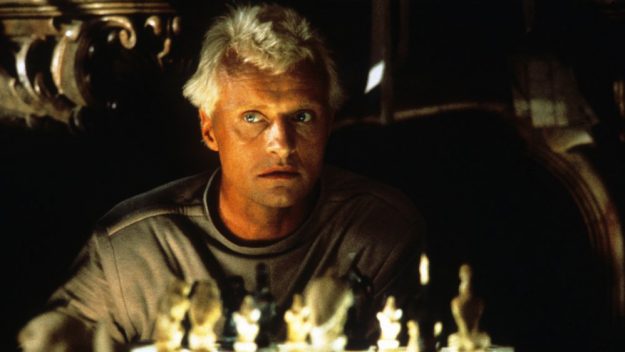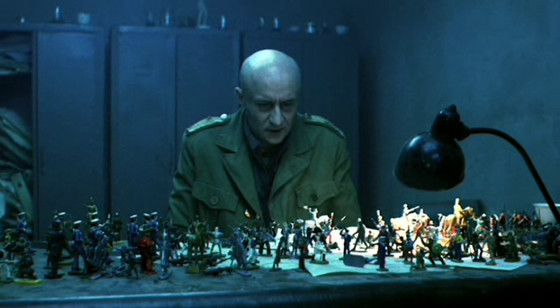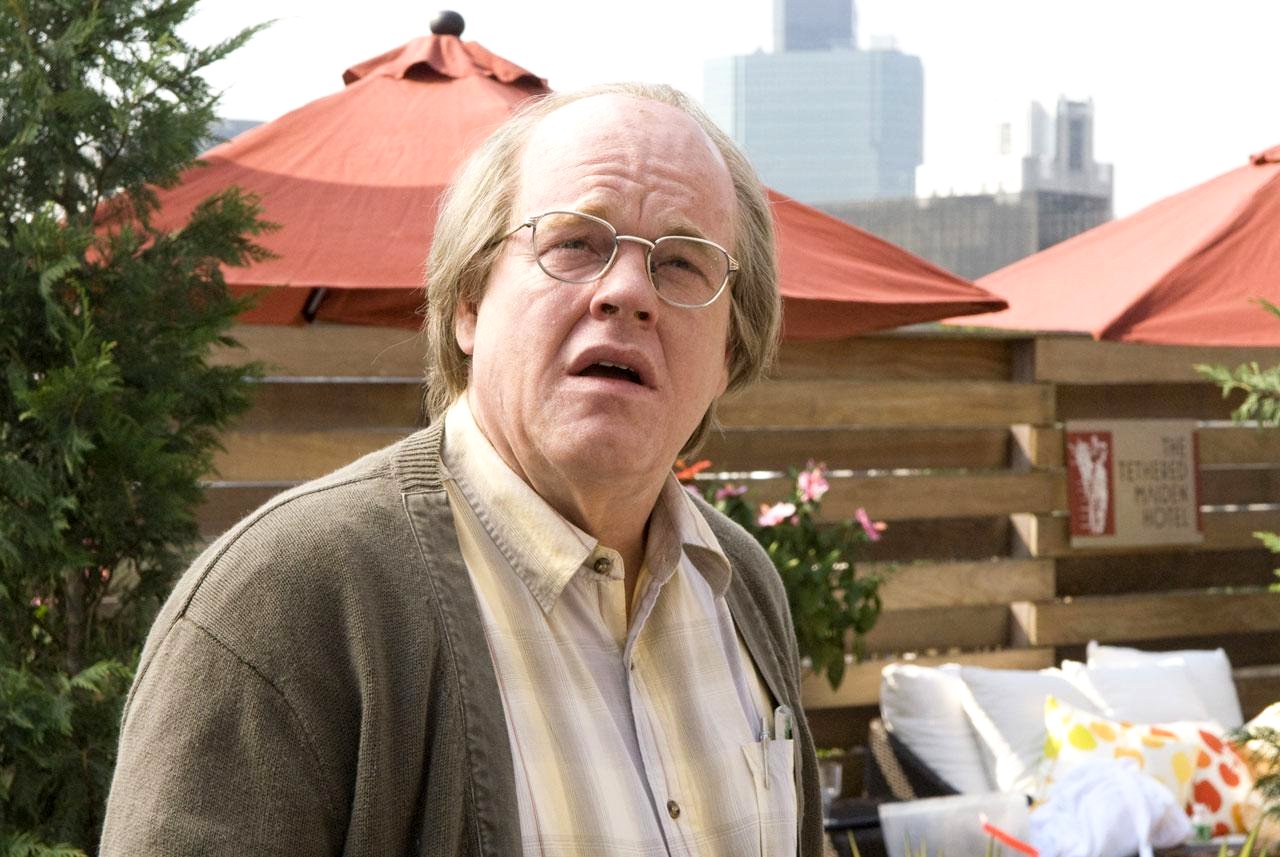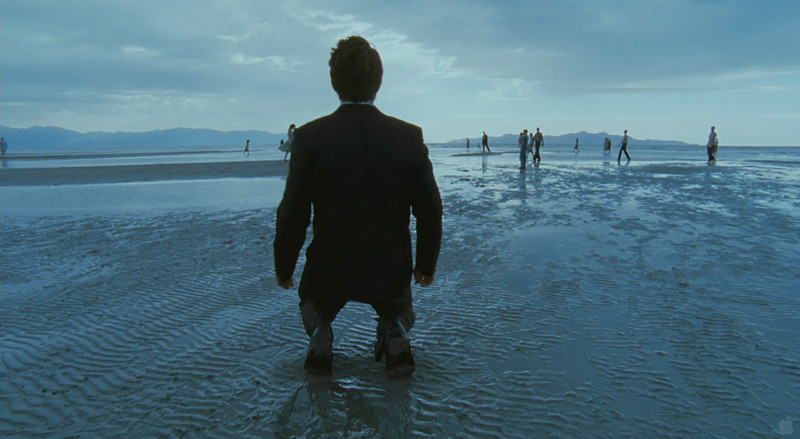6. Blade Runner (1982)

Ridley Scott’s landmark neo-noir about a former law-enforcing agent coming out of retirement to hunt down artificially-created humanoids manufactured to serve as cheap labor in off-world colonies in 2019 Los Angeles may have flamed out without a whimper during its theatrical rollout in 1982. But the film has been fully rehabilitated in the ensuing decades for its unequaled influence on the aesthetic evolution of cyberpunk sci-fi and prescient themes that feel more vital than ever now.
Our troubling dependence on technology and artificial intelligence, the corrupting influence of greed on the human spirit, and the blurred distinction between man and man-made machines in an increasingly post-human world are all core underpinnings of this novel adaptation based on Philip K. Dick’s short story, which gifted us with a memorable, oft-quoted monologue on the fleeting, ephemeral nature of life by Rutger Hauer’s rogue Replicant Roy Batty. For better or worse, whether Harrison Ford’s morally conflicted Rick Deckard is indeed a Replicant model or not continues to be one of the most ardently discussed debates on film criticism today.
7. O-Bi, O-Ba: The End of Civilization (1985)

One of the plethora dystopian sci-fi movies made in the Eastern bloc that examined the looming threat of nuclear annihilation hanging over everyone’s head during the Cold War, this bleak Polish gem stands out as a fascinating prism as which to understand mankind’s need for myth and delusion in the face of utter despair.
Set after a nuclear holocaust that deems the entirety of Earth’s surface wholly inhospitable, “O-Bi, O-Ba” finds the remnants of human civilization barely scraping by within an underground hideout where a jaded bureaucrat (Jerzy Stuhr) is tasked with spreading the unfounded rumor that a mythical savior ship — The Ark — will imminently come their aid and bring them to the promised land.
A bleak examination of how ordinary people react under extreme pressure in the face of impending doom, Piotr Szulkin’s 1985 deep cut has been identified as a veiled anti-Soviet manifesto. But its argument that religion is nothing but a mere coping mechanism constructed to give hopeless people false comfort hews closest to the perspective of existentialists like Sartre and Camus as well as Karl Marx, who famously dubbed religion as the “opium of the people.”
8. The Matrix (1999)

The idea that our perception of reality might exist simply as an illusion or computerized simulation wasn’t exactly uncharted territory by the time moviegoers watched Keanu Reeves take the red pill, learn how to dodge bullets, and do karate chops in “The Matrix”. But after being buried under popular acclaim and shamelessly ripped off for several decades now, it’s easy to forget just how radical, kick-ass and groundbreaking this cockeyed fusion of cyberpunk sci-fi, martial arts, steampunk anime, and Y2K bug anxiety felt at the time.
This mind-bending blockbuster directed by the Wachowski siblings single-not only brought trench coats, wraparound shades, and black leather back in vogue but also spawned an endless stream of barbershop talk and online chatter on the nature of existence, AI, and glitched simulations after leaving an undeniable imprint on popular culture as we know it at the dawn of the new millennium.
Neo’s journey from underground computer hacker to messianic figure who leads a 22nd-century rebel insurgency into revolt against the machines after discovering a vast conspiracy to exploit mankind recalls the prisoners in Plato’s allegory of the cave as well as the work of Descartes with a dash of Zen Buddhism squeezed in for good measure. Add in some killer one-liners, badass wire fu choreography, and bullet-time showdowns and you have grade-A comfort food you can simply watch over and over again.
9. Synecdoche, New York (2008)

The meaninglessness of life, the inevitability of death, and hubris as the folly of man are three concepts captured with heart-stopping candor in Charlie Kaufman’s soaring directing debut starring Philip Seymour Hoffman as Caden Cotard, a crestfallen depressed playwright ruminating on his mortality who’s hellbent on creating a transcendent piece of art that will cement his legacy and hopefully redeem his various professional and personal shortcomings.
The gray line that divides Caden’s art and real life as an extension and mirror of each other begins to blur as he embarks on his most ambitious project yet, a play-within-a-play stage production set in an empty warehouse that attempts to create a life-size replica of New York inside. The narrative soon folds on itself with characters popping in and out in different roles as Caden loses control of his play while slowly inching towards his inevitable death and struggling to come to terms with the inexorable passage of time.
Sure, it may be a tad self-indulgent and tough to wrap your head around on first viewing, but it is also, full stop, one of the quintessential movies of the 21st century and one of Philip Seymour Hoffman’s finest hours.
10. The Tree of Life (2011)

A scattershot recollection of transient memories flash before our eyes in Terrence Malick’s semi-autobiographical family drama, which stretches in and out from the mind of Jack (Sean Penn), now a disillusioned middle-aged man, as he grapples with loss and faith while reminiscing about his childhood days in 1950s Waco, Texas.
One of the great movies ever made about the fleetness of life, the way trauma shapes and defines us, and how we turn our gaze to the past in the absence of present answers, this 2011 Palme d’Or winner gracefully shot by Emanuel Lubezki is perhaps the closest cinema has ever gotten to suspend time, dive head-first into someone else’s memories, and distill them one by one into celluloid.
We’re talking about a Malick film here, so philosophical voiceovers anchored by ethereal music and contemplative ruminations about the search for meaning and mankind’s place in the cosmos are to be expected. If you’re feeling daring, consider clearing out your schedule to watch the extended director’s cut released by Criterion in 2018 — which provides a panoramic view of, well, the entire history of the universe from the creation of the cosmos and the Mesozoic Era all the way to the present day. Just take our word for it, it will be time well spent.